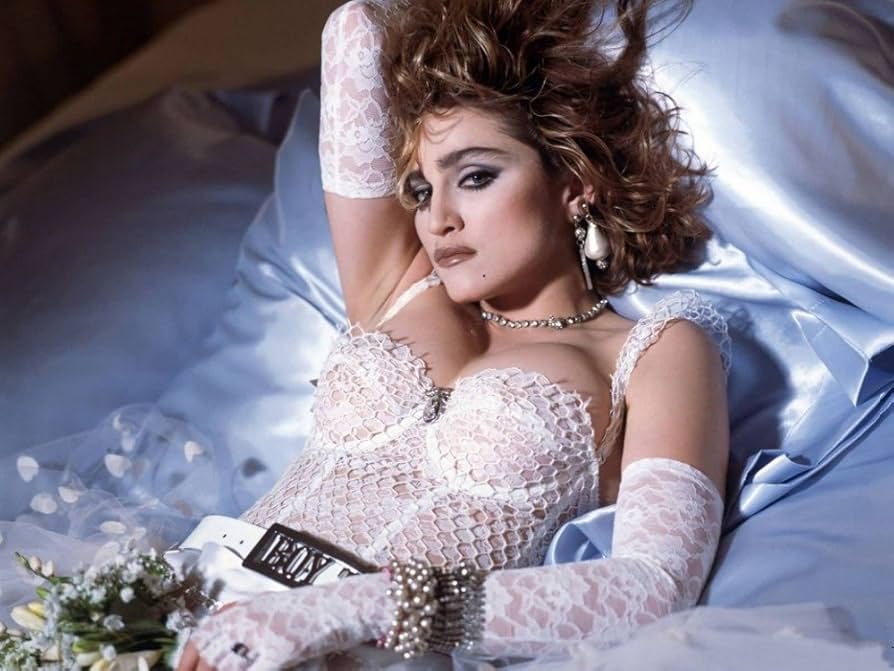Madonna, the unrivaled Queen of Pop, has captivated the world for over four decades with her fearless reinvention and genre-defying career. From her early days of controversy with “Like a Virgin” to her status as a cultural icon, Madonna’s journey has been one of resilience, audacity, and artistic brilliance. Discover how she redefined pop music, influenced fashion, and left an indelible mark on entertainment and culture.
A Born Rebel: Madonna’s Early Life and Rise to Stardom
Born Madonna Louise Ciccone on August 16, 1958, in Bay City, Michigan, Madonna was destined for greatness—let’s face it, with a name like Madonna, anything less would’ve been a letdown. Growing up in a large Italian-American family, she experienced both the discipline of her Catholic upbringing and the chaos that would shape her rebellious spirit. Losing her mother at just five years old gave her the drive to be unforgettable, and she took that drive all the way to New York City at 19, where she was determined to make it.
New York was gritty and tough, and so was Madonna. She worked terrible jobs (yes, including being a bad waitress) while studying dance, practicing at all hours, and irritating anyone within earshot. But that tenacity eventually paid off, and in 1983, her self-titled debut album was released, marking her entry into the music industry. But it was her next album, Like a Virgin, that made her a household name—and maybe made some people’s grandparents clutch their pearls.
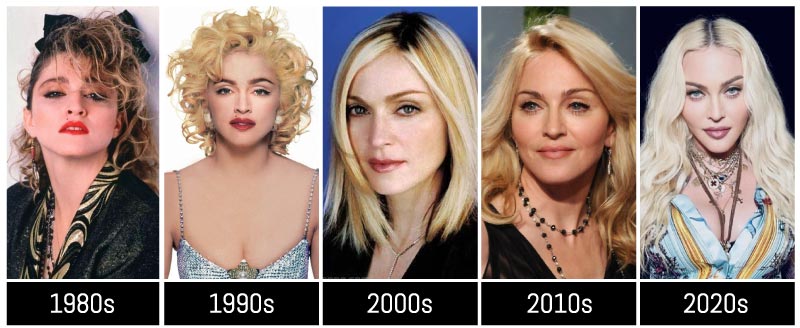
Reinventing Pop Stardom: From “Like a Virgin” to “True Blue”
Madonna made a name for herself with her 1984 album, Like a Virgin. The title track had everyone singing along, while Madonna rolled around on stage in a wedding dress—earning her equal parts fans and scandalized critics. She quickly became known as the master of reinvention, changing her persona every few years, keeping audiences on their toes, and basically treating genre boundaries like they were mere suggestions.
She dropped the album True Blue in 1986, which saw her taking on a more mature image, exploring themes like family and relationships. Songs like “Papa Don’t Preach” had everyone talking—mostly because it tackled controversial issues—but Madonna didn’t care. She was here to stay, and she was going to do things her way.
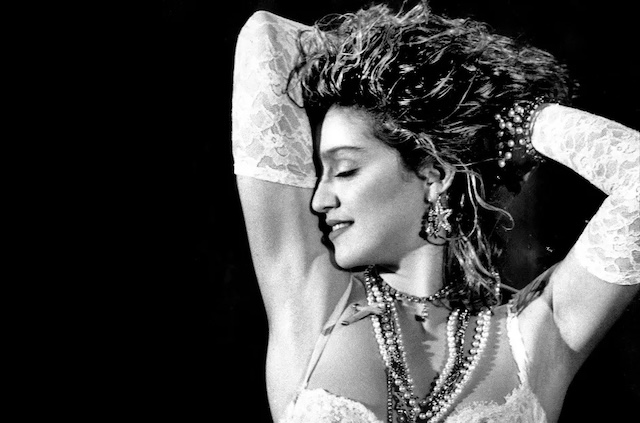
Like a Prayer: Madonna the Cultural Provocateur
With Like a Prayer in 1989, Madonna once again set out to shock the world. The music video included religious imagery that caused an uproar, but she leaned right into the controversy. It wasn’t just about pushing buttons, though. Madonna was taking on bigger themes—faith, love, empowerment—and doing it with her trademark flair. She wasn’t just making music; she was making a statement.
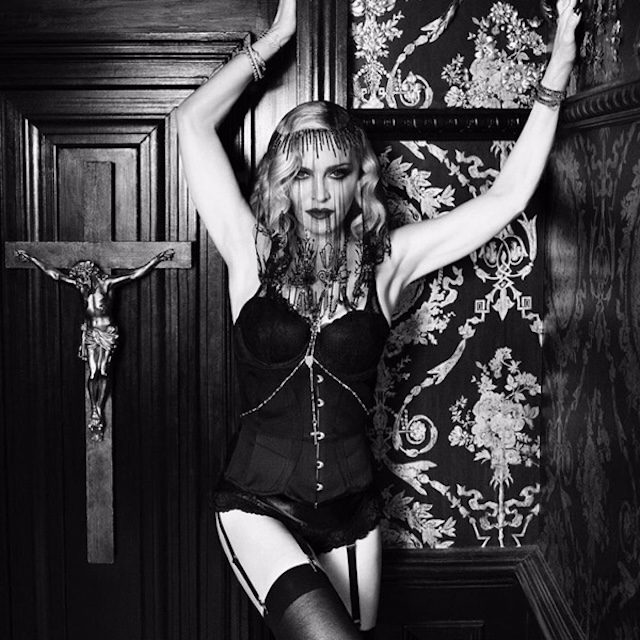
The ’90s: Erotica, Acting, and Icon Status
The 1990s saw Madonna turning up the controversy even more with albums like Erotica and Bedtime Stories. She fearlessly tackled themes of sexuality and intimacy, making conservative critics lose their minds while she laughed all the way to the bank. The album Ray of Light, released in 1998, was yet another reinvention—this time focusing on spirituality, motherhood, and electronic beats. Critics praised her exploration of deeper themes, and she added more Grammys to her growing collection.
Oh, and let’s not forget her acting career. She gave us films like Desperately Seeking Susan, Dick Tracy, and A League of Their Own. But it was her role in Evita that earned her a Golden Globe, showing that maybe, just maybe, Madonna could make a decent actress too—when she put her mind to it.
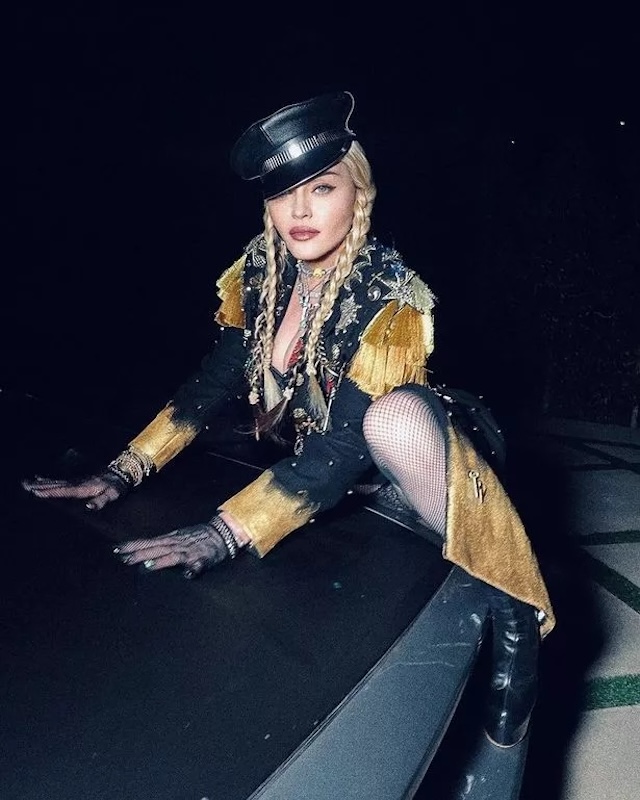
Businesswoman Extraordinaire
Beyond music and acting, Madonna was also making moves in business. She co-founded Maverick Records, helped launch Alanis Morissette’s career, and basically solidified her status as a mogul. Then there’s her influence on fashion—cone bras, pirate eye patches, you name it, she’s worn it, and somehow made it a trend. The woman is as much a walking fashion experiment as she is a pop star.
Controversy Is Her Middle Name
It wasn’t all glitz and glamour, though. Madonna’s career has always been marked by controversy. From the risqué content of Erotica to religious pushback over Like a Prayer, Madonna seemed to collect critics like others collect stamps. Censorship? Boycotts? She’s faced them all, and instead of backing down, she just turned up the volume. It’s that relentless spirit and thick skin that have helped her endure in an industry that often chews people up and spits them out.
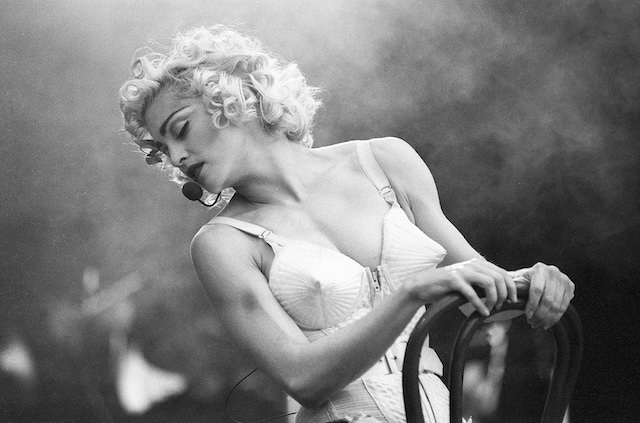
Recent Years: Madame X and Beyond
Most people in their 60s would be thinking of retirement, but not Madonna. In 2019, she released Madame X, an album that had her embodying a globetrotting secret agent (yes, really) and drawing on influences from around the world. The album had a bit of everything—Latin beats, African rhythms, you name it. It’s like Madonna decided she was going to put her passport to good use and mix it all into an album.
Her Madame X Tour was intimate, theatrical, and a little bit bonkers—but it was quintessential Madonna, and her fans loved it. She’s active on social media these days too, sharing everything from her art to her political views, because why would Madonna ever keep things simple?
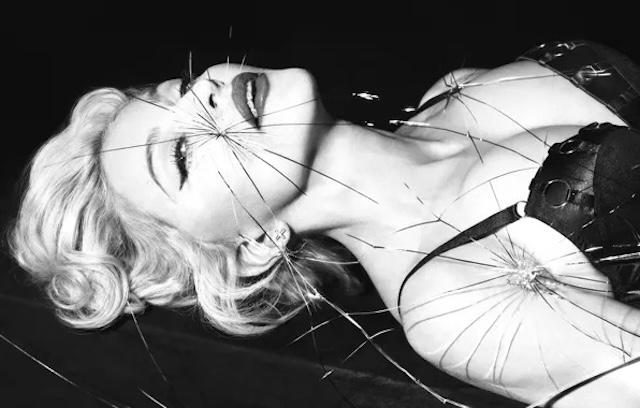
Conclusion: A Legacy Like No Other
Madonna’s legacy isn’t just about the music—although she’s sold over 300 million records and redefined pop along the way. It’s about her audacity, her refusal to conform, and her ability to constantly adapt, evolve, and stay ahead of the curve. She’s pushed boundaries, broken barriers, and created a blueprint for what it means to be a global pop icon.
Love her or hate her, one thing’s certain: Madonna changed the game. Her influence will be felt for generations to come, whether it’s through her music, her boldness, or her fearless approach to being unapologetically herself.
